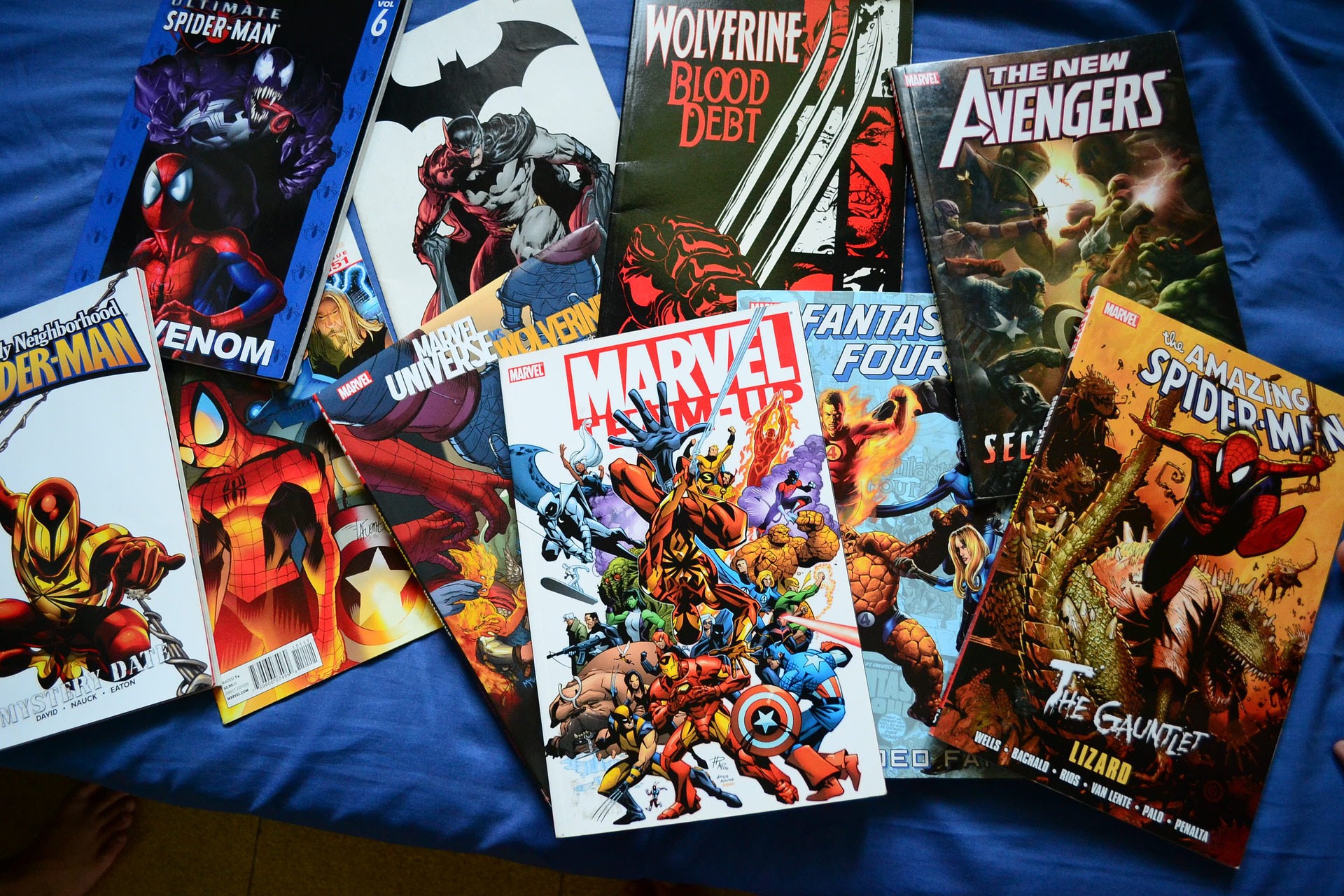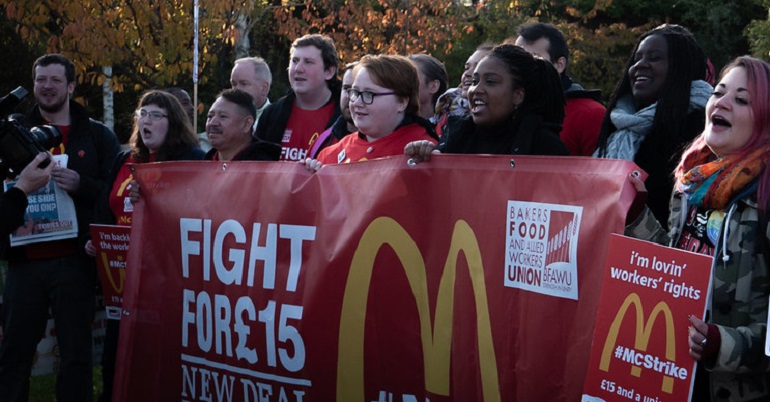What’s the message of the Marvel Cinematic Universe?

After 18 movies, 11 TV shows and 5 ‘one-shots’, the Marvel Cinematic Universe has finally reached the event it has all been leading to: Avengers Infinity War. Featuring a cast almost as swollen as its budget, the movie is one of the most anticipated in living memory. But beyond the humour and the action and the sheer scale of it all, is there any substance to the sprawling project? Does the MCU stand for anything?
Too often comics and films in the genre have been patriotic propaganda, problematic in their treatment of female characters and can often feel like little more than basic action sequences devoid of meaning. The MCU is certainly not without these problems, as well as others. The number of superheroes in the shared universe that have large pools of wealth, the support for a monarchy and liberal, moderate solutions to intractable social crises offered in Black Panther and the lack of diversity in main characters (not to mention simply turning one character white to avoid controversy) are all problematic. Perhaps most fundamentally, the superhero trope itself, with its glorification of an all-powerful individual swooping in to save the day, serves a liberal, ultimately capitalist narrative of individualism.
But what makes the MCU such a unique project? What is it the heroes do in this universe, that has people so psyched for Infinity War? They come together. They team-up. Infinity War is so unprecedented, has conjured such excitement, precisely because of the enormity of it, because of all the moving pieces and the relationships between them. Perhaps, unintentionally, the cynical cash in of a shared universe serves, in a small, limited way, to undermine the mentality that drives the billion-dollar industry – challenging a relentless, rigid individualism: the heroes can’t do this on their own.
This is compounded by how flawed, how real, these characters are. Spiderman is young, overly-keen to prove himself and at times rash. Tony Stark has frequently made bad decisions that have harmed others, suffering from alcoholism, anxiety and severe guilt throughout the films. Thor learns to curb his arrogance and privilege, even forsaking the throne to choose instead to serve, rather than rule, his people. Many of the Netflix characters such as Daredevil, The Punisher and Jessica Jones, struggle with tragedy and mental illness, whilst grappling with the morality of their decisions.
This reaches its height in Civil War, showing multiple characters making questionable decisions and whilst a villain is the catalyst, the drivers of the conflicts are the views and relationships between the ‘heroes’ themselves, grappling over a problem very real to our world: what do with power. This is the MCU at its best, evident in The Winter Soldier and Black Panther too, bringing complex and pertinent political questions to a mainstream audience in a colourful and entertaining guise, even if the morals they seem to tell are sometimes problematic.
To steal the age-old trope from Uncle Ben, this is the core of these movies: power… and responsibility. These characters, both heroes and villains, often wield enormous power, at times obtained questionably. The common theme across all of the MCU’s projects, if there is one, is about the rights ways to deal with and utilise these powers. From SHIELD reforming itself after it’s mistakes, to T’Challa recongising that Wakanda can no longer hide itself away, to Tony Stark recognising the damage his business has done and going to dangerous, desperate lengths to make up for it, to Mordo’s warning to Doctor Strange after he uses the Time Stone that ‘the debt always comes due’ – power, how it should be used and held accountable and how much of it one person should have are constant themes explored in the movies and TV shows. This is not to say that the architects of this universe have deliberately set out to make such statements, but that doesn’t mean the message isn’t still there all the same.
This is about to reach its zenith in Infinity War, with near-omnipotent power concentrated in the hands of just one singular megalomaniac. With all six infinity stones assembled, Thanos, already an immensely powerful individual, will reach god-level status… and will be accountable to nothing but his own twisted philosophy. The task of the heroes will be to stop the accompanying Armageddon (well, half-Armageddon): to stop power being concentrated in too small a number of hands.
That being said, the MCU universe employs a classic Aristotelian catharsis model whereby the audience is released by negative affect, reliving emotions through the protagonists and thereby resolving them, being ‘purged’. These aren’t films that call us to action but to passive consumption. They offer us imaginary solutions to very real problems. That’s dangerous when you consider the morals written about earlier in this article. What model does MCU actually give us apart from the very real fact that chance is a key part of life (Cap being a test subject, Banner’s accident, or even T’Challa being born into the family he was)? Or that freedom is in the hands of the rich and powerful and we must rely on them to save us (Literally every MCU Superhero)? That unless you’re ‘special’ in some way you won’t change the world (Watch all the non-Superhero people run away in fear and for safety)?
Whilst challenging such logics on one level, the MCU universe and superheroes in general bleed detrimental individualism and meritocracy. They only have value as long as they do what they do and have the powers that they have. That’s not a message that can liberate, not a message of communal action regardless of Infinity Wars ‘team-up’. Stories are an important part of our fabric as humans and films have taken over the aural tradition of our ancestors, created in a very real ideology that values doing over being and the individual over the community. Don’t misunderstand: we’ve always loved our heroes. But the MCU superhero stories keep to the status quo more often than not, as we saw at the end of Black Panther (rich and powerful man decides how people will be helped). They rarely challenge it to the degree we need.
The MCU is a flawed, problematic project in a number of ways – no mainstream film project worth billions is going to survive untainted by neoliberal mentalities, or push too far too often from a comfortable status quo – the revolution will not be from Hollywood. The question is whether enough of something shines through to make it worth it. In our world, a world faced with unprecedented economic and political power consolidated in the hands of the few, aided by a project of atomising individualism, threatening planetary meltdown… are there morals in the MCU we could do with hearing? And can we shake off the passive, consumer role it offers them to us in (intentionally or not), and the problematic framework it offers it in, and shape it into something more?




Wow what a great article! Can I add one more dimension to why we all flock to the superhero model? It’s not my idea, but once I heard it from someone I deeply respect, I was sold on it and I started acting accordingly. The idea is this: superheroes hold up to all of us the possibility of acting and setting things right around us, indeed they say to us that to not get involved, even when the odds are heavily against us, is a mistake. The films say that you must fight even when defeat is an ever-present reality, and then stand up and fight again. The person who taught me this also said that we should all aim to be those superheroes – understand that in any given situation we are called to act to make it right and that winning is not the prize. Struggle is. Joint struggle – even better.